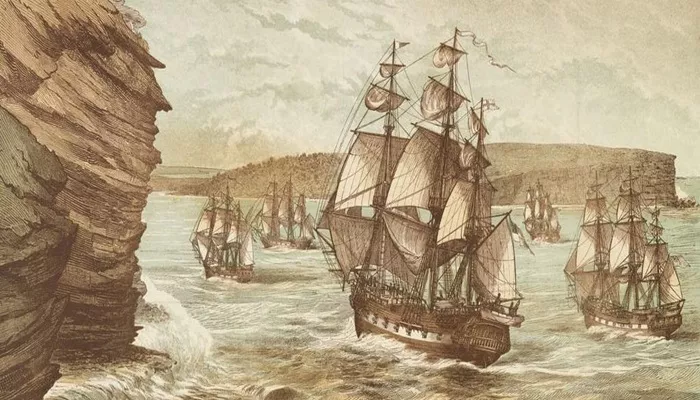January 17 is a date marked by various notable events in Australian history, spanning from the early colonial period to contemporary times. This article explores these events in detail, providing context and significance to each occurrence.
What Happened on January 17 in Australian History?
The Arrival of the First Fleet (1788)
While January 17 does not directly correspond to a specific event in the arrival of the First Fleet, it is essential to understand its significance within the broader timeline of Australian history. The First Fleet, which arrived in Botany Bay in January 1788, marked the beginning of British colonization in Australia. Captain Arthur Phillip led this fleet, which consisted of 11 ships carrying convicts, supplies, and marines. The arrival set the stage for the establishment of a penal colony and significantly altered the lives of Indigenous Australians.
1917: Formation of No. 4 Squadron, Australian Flying Corps
On January 17, 1917, No. 4 Squadron of the Australian Flying Corps was formed and sailed for France. This squadron played a crucial role during World War I, particularly in aerial combat over the Western Front. The pilots flew Sopwith Camels and were involved in significant battles, including the Battle of Cambrai. The establishment of this squadron reflects Australia’s growing military involvement on the global stage during this tumultuous period.
1944: Meat Rationing Begins
In response to World War II and food shortages, meat rationing was introduced in Australia on January 17, 1944. This measure was part of a broader effort to ensure that essential food supplies were distributed fairly among the population. The rationing system affected many Australians and highlighted the challenges faced during wartime, as resources were limited and needed to be conserved for military efforts.
1970: Cyclone Ada Strikes Central Queensland
On January 17, 1970, Cyclone Ada made landfall in Central Queensland, resulting in widespread destruction and claiming 14 lives. The cyclone caused significant damage to homes and infrastructure, leading to extensive recovery efforts. This natural disaster underscored the vulnerability of coastal communities in Australia to severe weather events and prompted discussions about disaster preparedness and response strategies.
1972: Establishment of the Tent Embassy
A pivotal moment in Australian history occurred on January 17, 1972, when a tent embassy was established outside Parliament House in Canberra. This protest aimed to raise awareness about Indigenous land rights and sovereignty issues. Activists set up tents to symbolize their demand for recognition and justice regarding land dispossession and treaty rights. The tent embassy became a significant site for Indigenous activism and has continued to influence discussions around reconciliation and rights for Aboriginal Australians.
1922: The First Archibald Prize Awarded
On January 17, 1922, the first Archibald Prize for portraiture was awarded to artist William McInnes. This prestigious award recognizes excellence in portrait painting and has become one of Australia’s most celebrated art prizes. The Archibald Prize not only highlights artistic talent but also serves as a reflection of Australian society and culture through its portrayals of notable figures.
1991: Gulf War Coalition Air Attacks Begin
On January 17, 1991, coalition air attacks commenced against Iraqi forces as part of Operation Desert Storm during the Gulf War. Australia was part of the coalition supporting Kuwait’s liberation from Iraqi occupation. This involvement marked a significant moment in Australia’s foreign policy and military engagement on an international scale.
Conclusion
January 17 has witnessed various significant events throughout Australian history that reflect social change, military involvement, cultural milestones, and natural disasters. Each event contributes to understanding Australia’s complex historical narrative and its ongoing journey towards reconciliation with Indigenous peoples and acknowledgment of its diverse heritage.This exploration into January 17 reveals how historical events shape national identity and influence contemporary discussions around rights, culture, and community resilience. As Australia continues to navigate its future, these historical moments serve as reminders of the lessons learned from both triumphs and tragedies throughout its past.
Related Topics:

